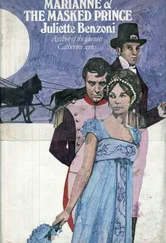Marianne Fritz
The Weight of Things
A NOTE ON THE TRANSLATION
Many of the names in The Weight of Things have secondary meanings: Faust, Berta’s maiden name, means fist , as well as recollecting Goethe’s famous play; Schrei, Wilhelm’s surname, means scream or cry ; Reichmann is analogous to Richman in English, and so on. The place-names are particularly significant: the town of Donaublau or Danube-blue invokes the waltz by Johann Strauss, and Allerseelengasse, where Berta was born, is named for All Souls’ Day, when the dead are mourned. We have elected to leave these proper names in the original to avoid giving the text a parodic tone that would stray from the sense of the original, where they are less obtrusive than they would be in English. There are also scattered allusions to literature and politics from the time of the book’s writing: when Berta and her children sing “I know not what it means,” this is the first line of Heinrich Heine’s Lorelei , and the Isle of the Blessed, a notion Wilhelm hits upon in describing his home country, was a favorite term of Chancellor Bruno Kreisky in his praises of Austria’s alleged social harmony.
Of all the events of 1945, there was one Wilhelmine recalled with particularly painful clarity. Wilhelm had hung the necklace with the tiny Madonna around Berta’s neck, not hers. This although Berta’s belly clearly demonstrated that she, unlike Wilhelmine, was no longer a chaste young woman. For her own sake — and for Berta’s! — she ought to have spoken her mind. Maybe Berta had been good enough for Rudolf , but she certainly was never right for Wilhelm!
“Rudolf is so gentle and indulgent. A born brooder. He needs a firm hand, someone with both feet on the ground. He’s a dreamer! His head’s in the clouds! He needs a woman who knows what she wants! Berta, he’s just not right for you.”
If, when Berta had come to her, Wilhelmine had spoken words to this effect, would Berta have ever fallen for Rudolf?
“Berta, you poor little fool! Couldn’t you have found a better time for making babies? Rudolf might not even make it back from the front! And he couldn’t slaughter a chicken, let alone raise a child! Too sensitive, too timid, never stuck his neck out for anything. Now he’s gone off who-knows-where and the only thing you can think to do is have a kid! Berta! This is crazy!”
If, when Berta had come to her, Wilhelmine had spoken words to this effect, would Rudolf’s last furlough have produced such a tragedy?
If so, then Wilhelmine’s restraint was her own undoing — for Rudolf had indeed failed to return, and in his place came a stranger, Wilhelm Schrei, who handed Berta a daisy and a letter. She accepted both like precious jewels. “So. So,” Berta said. Not even a “Thank you, sir.” This stranger had trudged to Donaublau from Frankfurt on the Oder, in such treacherous times, no less, and all Berta had to say was: “So. So.”
Heaven knows, that was going too far! Wilhelm, the poor sap, just stood there without a clue what to say. And what did Berta Faust do? She just forgot him; sat down at the table, ran her hand over the tablecloth, trying to smooth it out; said again, “So. So,” and didn’t even look up.
That’s how Berta Faust was. Never in the present moment; always with her mind somewhere else.
In her misfortune Berta was at least lucky enough to have her — Wilhelmine — around. It was she — Wilhelmine, and not Berta (!) — who offered Wilhelm schnapps, ham, bread; luxuries that sometimes Berta’s father and sometimes she — Wilhelmine and not Berta (!) — used to buy on the black market or from farmers. Wilhelmine let the plainly quite hungry young man eat in peace and asked questions — questions that really Berta herself should have been asking — only once Wilhelm had stopped his frantic pawing at the ham and bread.
“All right. Rudolf’s left us. That must have happened to a lot of people. At least tell us: how did he go? Was it over quick, or did it drag on?”
The poor fool was naturally so daunted and perplexed by Berta’s thoroughly inhospitable silence that he hemmed and hawed, refusing to speak of such things, though this was the perfect time to sort them out once and for all.
No, Berta showed not the least consideration for that weary soldier. In the end, Wilhelmine even had to do Berta’s grieving for her.
“The poor, poor dears! They were made for each other! And that’s not all: a baby on the way, no husband in the house. Such a mess! What hope is there for a pregnant woman stuck living with her father — an old gravedigger to boot! The women in your family have always been blessed with useless men, Berta, but this Rudolf of yours has topped them all! It’s enough to make you jump out of your skin. Berta, say something!”
Berta giggled and said: “So. So.”
“What’s so funny?” Wilhelmine hissed at Berta. Then she turned back to Wilhelm: “Karl was undoubtedly the most respectable of the three Faust boys. But there’s been no word from him since this May. We did at least find out he’d been laid up in the military hospital in Castelfranco, which is somewhere near Modena. Richard, his twin brother, wasn’t much of a letter writer either. After March of 1944, not a single word. Upper Silesia isn’t even that far. You’d think he could at least have gotten away for a few days’ leave! And then Wastl, Wastl clean forgot he even had a mother and sister back in Donaublau waiting for word from him. Wastl in Grajewo, Karl somewhere near Modena, Richard in Upper Silesia — that’s all we ever knew. You call that staying in touch? They could at least have sent a letter home with someone, don’t you think? In case they didn’t make it? Shouldn’t they have thought of that? Berta, say something!”
Berta kept silent.
“No. This can’t go on. Someone needs to do something. What’s your story, sir? Are you planning on staying in Donaublau, then? Nowadays all the cities look more or less the same. A heap of rubble is a heap of rubble no matter where you go. Nowadays everyone has to start from scratch. The Faust boys used to sleep in the next room. That means we’ve got three empty beds, two dressers, a table, and three chairs — will that do for you?” And Wilhelmine stared at Wilhelm expectantly.
Wilhelm stayed. Yet it was not until the 13th of January, 1960 that the ring — the obligatory wedding ring Wilhelm had properly owed to Wilhelmine from that very first day forward — that Wilhelm at last placed this ring on her finger. Still, she at least got it in the end.
But the necklace with the tiny Madonna — that remained with Berta.
The degree to which the necklace with the tiny Madonna had become an object of Wilhelmine’s ambitions was something Wilhelm had never understood. Over time, he even forgot there ever was a necklace with a tiny Madonna.
For Wilhelmine, doubting and brooding were like alcoholism or drug or nicotine addiction, problems of the sort Wilhelm tended to evade with an “if” and a “but,” an “on-the-one-hand” and “on-the-other.” Wilhelmine assumed that it would always be her judgment — accompanied by some of Wilhelm’s “on-the-one-hands” and “on-the-others,” his “ifs,” his “ands,” and his “buts”—that would guide them through their various marital disputes. Yet even understanding full well how things were between them, there remained in Wilhelmine a vague anxiety that she had never been able to shake and that she could express only by occasionally exclaiming: “Wilhelm, something has to be done!”
Their household was consummately organized. Her position as cleaning woman for Dr. Ulrich Reichmann’s clinic and the Donaublau branch offices of the Mueller-Rickenbergs fulfilled both her financial and her creative needs. And what remained of Wilhelmine’s energy was burned up in her and Wilhelm’s ceaseless marital combat.
Читать дальше











